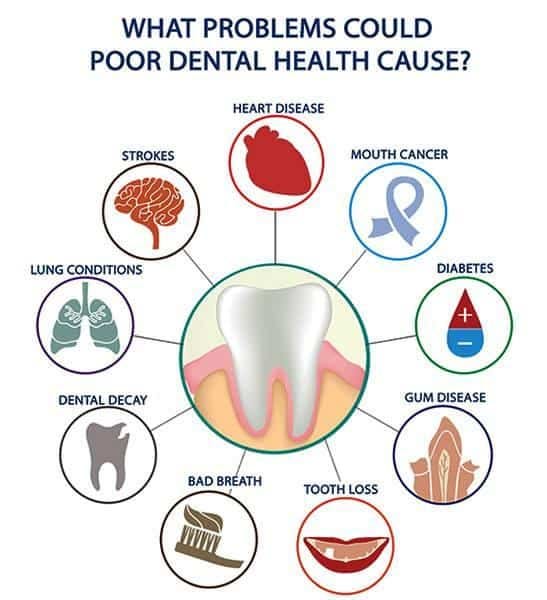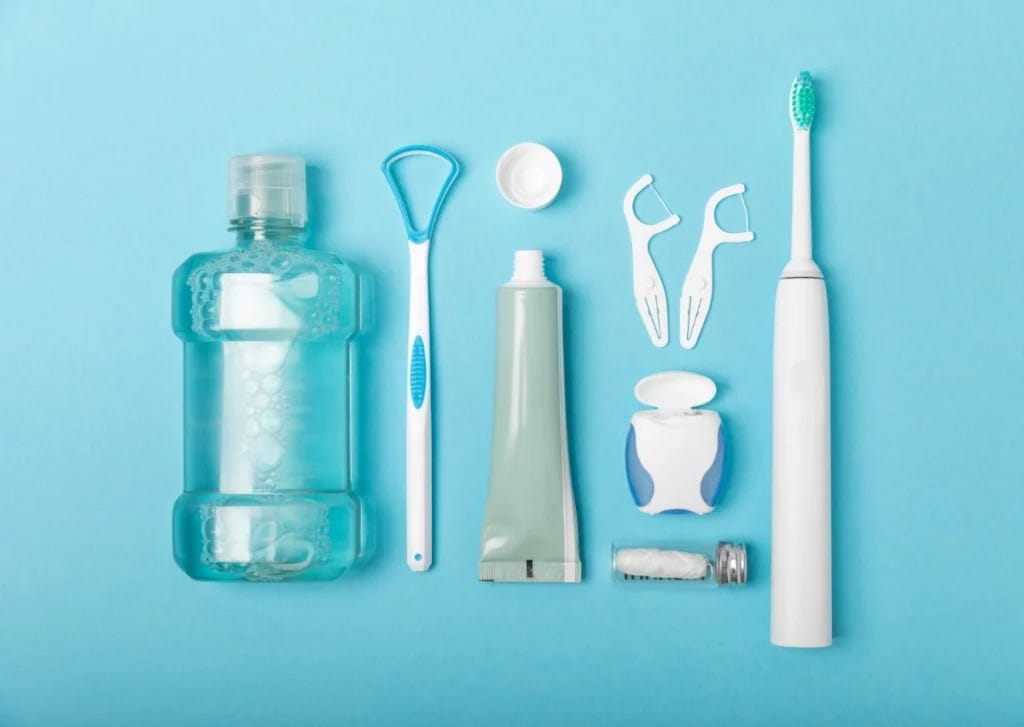Tooth Talk: The Importance of Dental Hygiene
Nothing you wear is more important than your smile and your smile starts with your teeth. Often overlooked, our dental hygiene is one of the most important parts of our overall health.
As I sat down to brainstorm this week’s topic from the comfort of my couch post gum grafting surgery, it hit me that this is the perfect time to talk about something many people often ignore in the health and wellness world: dental hygiene. I know most of us are thinking but “I hate the dentist” or “I don’t floss and I’m fine”, but dental hygiene is so much more than semi-annual cleanings or nightly battles with your gums. There are many parts to maintaining oral health including tongue cleaning, healthy diet, hydration, and more. Proper dental hygiene is essential not only for maintaining oral health but also for ensuring overall well-being. It’s not a coincidence that flossing can help extend your life expectancy by several years.
Not convinced? Let’s dive into why dental hygiene is so integral to our longevity. Gum disease is linked to several severe health conditions including diabetes, heart disease, respiratory infections, and dementia. The bacteria from gum disease can enter the bloodstream, leading to inflammation and potentially contributing to these conditions. Poor oral hygiene can increase the risk of heart disease. Bacteria from the mouth can travel to the heart, causing inflammation and leading to conditions such as endocarditis and cardiovascular disease. There has been shown to be a strong correlation between gum disease and diabetes because gum disease can make it harder to control blood sugar levels, while diabetes can increase the risk of gum disease. Gum disease is also associated with premature birth and low birth rates, so maintaining good oral hygiene while pregnant is crucial for women to prevent these complications.
Being preventative with your oral hygiene is especially important given there are so many easy and accessible ways to improve health and can save you thousands in medical bills later down the road. Regular brushing and flossing help prevent plaque buildup, which can lead to tooth decay and gum disease. Removing plaque and tartar is essential for preventing many oral health issues. Regular dental check-ups can help detect early signs of systemic diseases. The mouth can show symptoms of diseases like diabetes and HIV/AIDS, making dental visits a critical component of overall health monitoring. It is recommended to visit a dentist once or twice a year. People who smoke, are pregnant, have a history of oral health issues, older adults, or those with a weak immune system are recommended to go more frequently.
On top of physical health benefits, good oral hygiene contributes to a bright smile, which can boost confidence and self-esteem. Poor oral health can lead to tooth loss, impacting our appearance and psychological well-being. Oral health also affects our ability to eat, speak, and socialize comfortably. Maintaining healthy teeth and gums ensures that daily activities aren’t hindered. When your breath stinks, you probably don’t want to be out socializing.
Let’s start with the basics brushing and flossing. Brushing at least twice a day with a soft bristled brush and fluoride toothpaste helps protect teeth against decay by strengthening developing enamel and slowing acid production of bacteria, while removing plaque and food particles. It’s important to replace your toothbrush every 3 to 4 months or sooner it bristles are worn down. Flossing daily can help remove tartar and plaque from the hard-to-reach places we cannot get with our toothbrushes. Using an antibacterial or fluoride mouthwash can also help reach areas that brushing and flossing may miss. Tongue scraping is highly underutilized and an effective tool to remove bacteria and prevent against bad breath. Tongue scrapping in the morning when you wake up and before you go to bed can really level up your dental hygiene game.
Scheduling dental check-ups twice a year to get your teeth checked for cavities, enamel erosion, other disease signs and a professional cleaning and polishing is important. Probably one of the biggest issues for our dental health in today’s world is limiting sugary foods and drinks avoiding tobacco and highly acidic things and maintaining a balanced diet. Smoking and tobacco products increase the risk of gum disease and oral cancer, while eating diets rich in calcium, fruits, and vegetables helps to support oral health and maintain tooth enamel. Hydration is also important to help maintain saliva flow, which helps wash away food particles and bacteria and preventing cavities. As someone who tends to grind their teeth when stressed, using a mouthguard has helped relieve some jaw tension and stop from eroding my teeth. Using mouthguards during contact sports is also key to preventing costly and painful dental injuries because we all know that person who’s still dealing with dental issues after knocking out teeth as a child playing sports.
As the importance of oral health has continued to gain traction, companies across all aspects of dental hygiene have begun to innovate a category historically dominated by the likes of Colgate and Oral-B. Burst, which makes oral care products like whitening kits and toothbrushes and also produces probiotic supplements to help maintain a healthy oral microbiome. Oralucent developed a sonic toothbrush that emits a type of blue light that is proven to whiten teeth and eradicate harmful bacteria that causes plaque, gum disease, and bad breath. Cocofloss carries an array of non-toxic dental products from whitening toothpaste to thick plaque fighting floss. These creative, brand-forward companies are redefining oral health by making dental care cool and fun with bright colors, non-toxic ingredients, and high-tech products.







